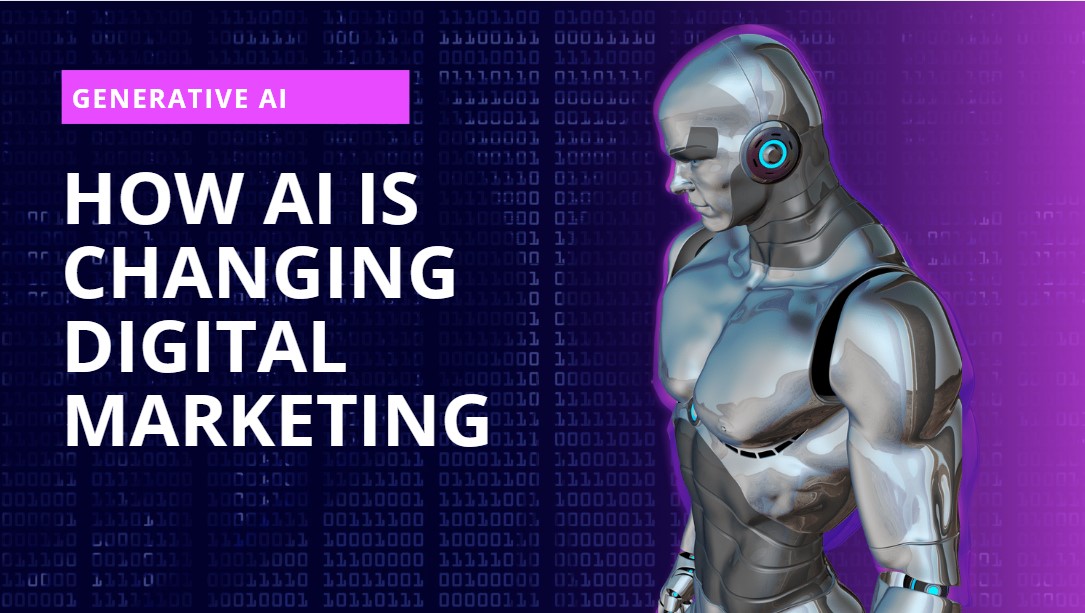Generative AI is rapidly transforming the way digital marketing is conducted. With its ability to create new and innovative content, it is revolutionizing the way marketers approach their strategies. In this blog post, we will explore the ways in which generative AI is changing digital marketing and provide some examples of how it is being used.
What is Generative AI?
Generative AI is a type of artificial intelligence that is used to create new and unique content. Unlike traditional AI, which relies on pre-programmed algorithms, generative AI is designed to be creative and generate content on its own. It can be used to create a wide range of content, including images, videos, and even text.
How Generative AI is Changing Digital Marketing
Personalization
One of the biggest advantages of generative AI is its ability to personalize content. By analyzing data on customer behavior and preferences, generative AI can create personalized content that resonates with each individual customer. For example, a clothing retailer could use generative AI to create personalized product recommendations based on a customer’s past purchases and browsing history.
Content Creation
Generative AI is also transforming the way content is created. By automating the content creation process, marketers can save time and resources, while also creating high-quality content that resonates with their target audience. For example, a travel company could use generative AI to create personalized travel itineraries based on a customer’s interests and preferences.
“AI today is best used to augment content creation,” said Paul Dughi, CEO at StrongerContent.com. “AI can help you find ideas and create ideas. However, it takes the human touch to create powerful storytelling that leads to conversions.”
Optimization
Generative AI can also be used to optimize digital marketing campaigns. By analyzing data on customer behavior and campaign performance, generative AI can identify areas where campaigns can be improved and make recommendations on how to optimize them. For example, a digital marketing agency could use generative AI to analyze data on ad performance and make recommendations on how to improve targeting and messaging.
Chatbots
Generative AI is also being used to power chatbots, which are becoming increasingly popular in the digital marketing space. Chatbots can be used to provide customer support, answer questions, and even make personalized product recommendations. By using generative AI to power chatbots, marketers can create a more personalized and engaging experience for customers.
Examples of Generative AI in Digital Marketing
Here are a few examples of how companies are using AI in marketing.
The North Face
The North Face, an outdoor clothing and equipment retailer, has used generative AI to create personalized product recommendations for customers. By analyzing data on customer behavior and preferences, the company is able to create recommendations that are tailored to each individual customer. This has helped to increase sales and improve customer satisfaction.
Persado
Persado is a marketing automation platform that uses generative AI to optimize marketing campaigns. By analyzing data on customer behavior and campaign performance, Persado is able to make recommendations on how to improve targeting and messaging. This has helped to improve campaign performance and increase ROI for many of its clients.
Chatbots
Many companies are using chatbots to provide customer support and engage with customers. By using generative AI to power chatbots, these companies are able to create a more personalized and engaging experience for customers. For example, H&M has used chatbots to provide personalized product recommendations based on a customer’s preferences.
The Future of Generative AI
The future of generative AI in marketing is promising. As more businesses adopt AI technology to automate tasks, streamline processes, and gain deeper insights into their customers, we can expect to see an even greater impact on the marketing industry.
Generative AI is likely to play a significant role in the development of new marketing channels and strategies. As more businesses begin to leverage AI technology to better understand their customers and deliver personalized experiences, we can expect to see new marketing channels emerge.

